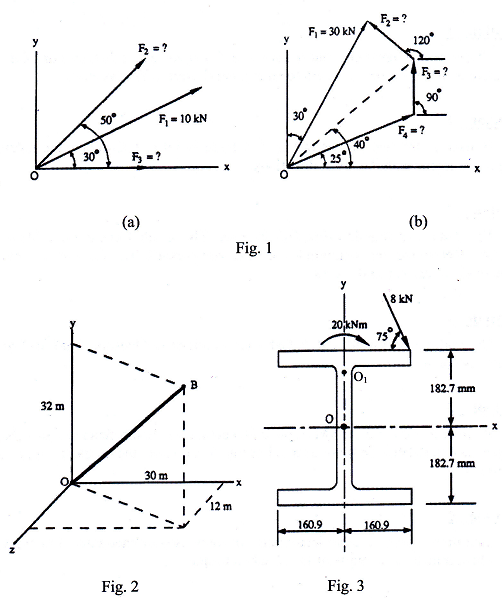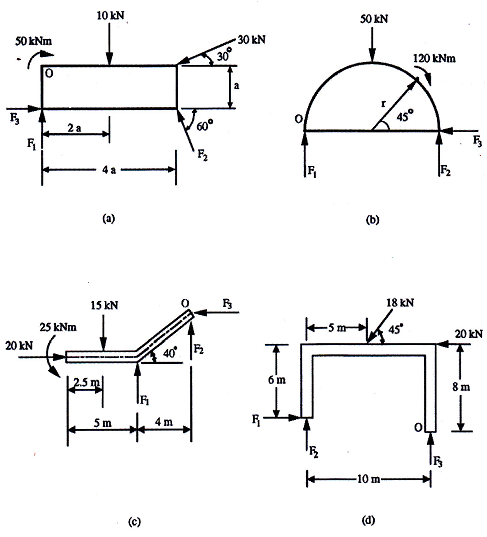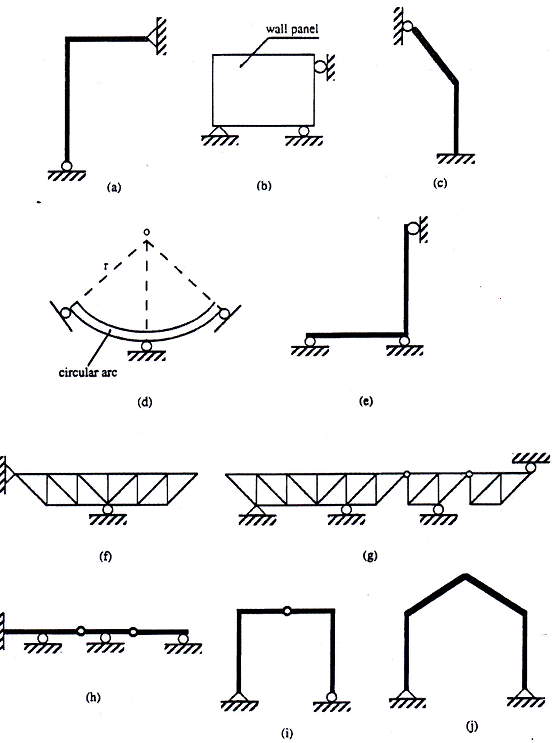Reference no: EM13809127
Question 1:
"Time has no beginning and it has no end". Do you agree that, true or false, this statement is of no practical concern to an engineer? Give your reason(s).
Question 2:
In each of the two figures in Fig. 1, a force is defined. Compute the unknown component forces with the given directions.
Question 3:
Fig. 2 shows a straight cable, OB, in space. The tensile force in the cable is T = 100 kN. Determine the magnitudes of the components Tx, Ty, and T2 parallel respectively to the x, y and z axes.
Question 4:
By working backward, check that your solutions to Question 2 do lead to the correct resultants
Question 5:
A force F and a moment M (around 01) acting on the top flange of an I-shaped column section (310UC283) are detailed in Fig. 3. Compute the moment with respect to point 0.
Question 6:
Cite three examples from instruments or tools used or encountered in everyday lives which transform a couple of forces into a torque.
Question 7:
Translating the point of action of a force along its line of action does not affect the movement of a structure (which may be considered as an elastic body). However, it does affect the local deformation and internal forces. What about the lateral transfer of a force on the same structure?
Question 8:
Inspect the building in which you live and recognise the various structural elements and the types of loading they carry.

Part 2:
Question 1:
For each of the planar systems shown in Fig. 1, set up, quantitatively, the relevant equilibrium equations, IF„ = 0, IFy = 0 and EM = 0. Note that the moment equations should be with respect to point 0 as indicated. Also compute F1, F2 and F3.

TUTORIAL 3: SUPPORTS AND SUPPORT REACTIONS
Question 1:
Consider each of the planar structures illustrated in Fig. 1 and determine if it is statically determinate, externally. If it is not, is it unstable or statically indeterminate?
Question 2:
Fig. 2 shows details of the centre-line diagrams for a number of beams, trusses, arches and frames which are externally determinate. Compute the support reactions.
Question 3:
For each of the continuous structures with internal hinged-connections as detailed in Fig. 3, determine the support reactions.
Question 4:
Using the graphical method, repeat Questions 2(c), 2(f), and 3(a).
